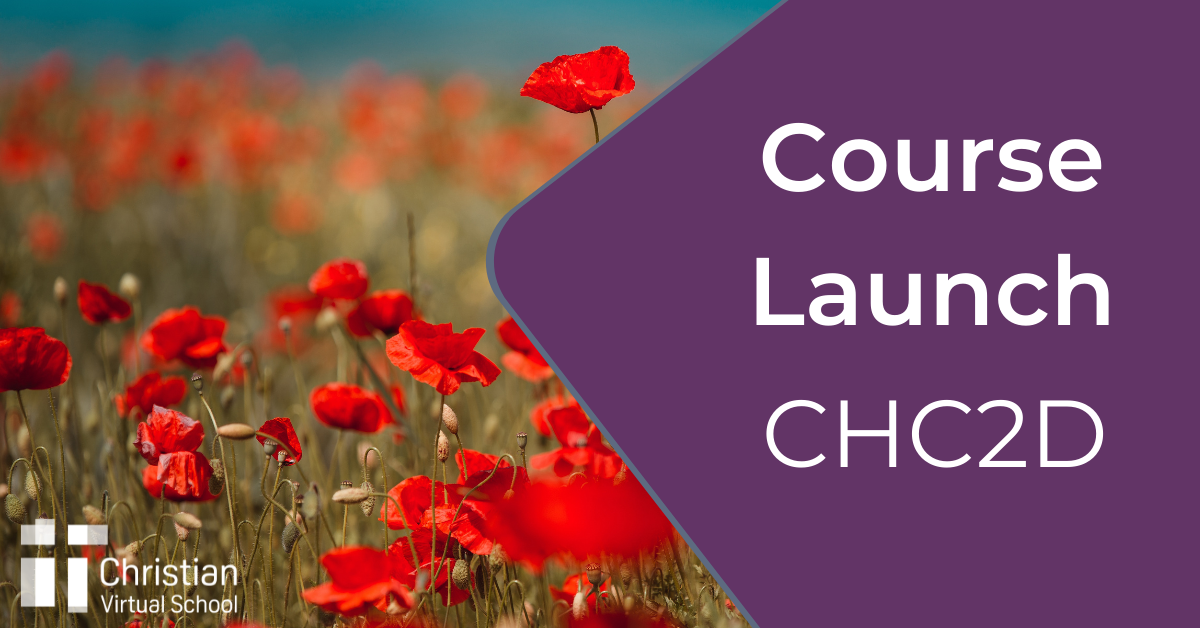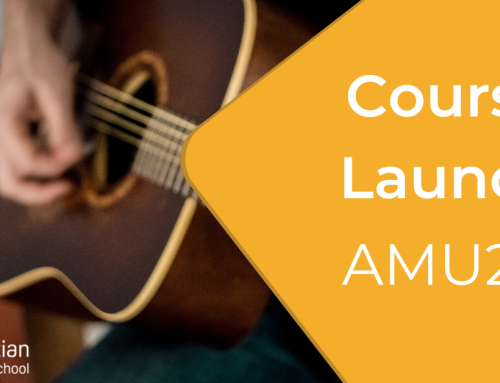 We are so excited to announce the launch of CHC2D: Canadian History Since World War I. Our very talented Matt Vanderheide wrote and will be teaching this course with us!
We are so excited to announce the launch of CHC2D: Canadian History Since World War I. Our very talented Matt Vanderheide wrote and will be teaching this course with us!
We are so thankful for the team that put this course together in order to be able to offer it for current and future students.
Course Outline
This course explores social, economic, and political developments and events and their impact on the lives of different individuals, groups, and communities, including First Nations, Métis, and Inuit individuals and communities, in Canada since 1914. Students will examine the role of conflict and cooperation in Canadian society, Canada’s evolving role within the global community, and the impact of various individuals, organizations, and events on identities, citizenship, and heritage in Canada. Students will develop an understanding of some of the political developments and government policies that have had a lasting impact on First Nations, Métis, and Inuit individuals and communities. They will develop their ability to apply the concepts of historical thinking and the historical inquiry process, including the interpretation and analysis of evidence, when investigating key issues and events in Canadian history since 1914.
To learn more about this course, you can view the course outline on our website or check out an excerpt called History Through a Christian Lens:
The study of history gives us the opportunity to examine all areas of human experience. Whether you are interested in social justice, medicine, women’s rights, racism, war, clothing, food, religion, (and the list goes on), the study of history allows for it.
This course of study is unique, however, in that it examines more closely the Canadian experience during the 20th and the beginning of the 21st Century. But as mentioned in grade 10 Civics, we are not merely Canadian citizens. As we study Canadian history, we must always remember that we do not have both feet in this country, so to speak. We are, in effect, dual citizens. Citizens of Canada and, as the Apostle Paul points out in Philippians, citizens of heaven. As believers in Christ and citizens of his Kingdom, our values and beliefs on all matters of historical importance will be influenced. Keep this in mind as we progress through this course.
But our citizenship is in heaven. And we eagerly await a saviour from there, the Lord Jesus Christ.
History provides us with context when we learn about it carefully. The first thing to remember when studying history, as opposed to other social studies disciplines, is put most accurately by L.P. Hartley in his 1953 novel, The Go-Between, that began the story with the phrase, “The past is a foreign country.” Not only is the past a foreign country, but often the study of foreign countries in the past, making it entirely different from our present day exprience. Therein, it is important to do our best to imagine what life was like “back then,” and use the voices of the past to provide us with an understanding of the choices historical actors made.
The second thing to remember as we study history is that through all and in all, God is at work in the world and we are his tools. Studying history allows us to see God’s hand, allows us to learn now the lessons that should have been learned in the past, but also to remember to remain humble through it all. The apostle James puts this well in chapter four of his letter to the Hebrews when he wrote:
Now listen, you who say, “Today or tomorrow we will go to this or that city, spend a year there, carry on business and make money.” Why, you do not even know what will happen tomorrow. What is your life? You are a mist that appears for a little while and then vanishes. Instead, you ought to say, “If it is the Lord’s will, we will live and do this or that.
Studying history reminds us that we are indeed, merely puffs of vapour that quickly vanish. History holds the unique ability to humble us as we view the vastness of human experience. And if we can embrace that humility, in the face of God’s larger plan for mankind, then we can become instruments of His redeeming power.
Finally, as we progress through this course, we will explore various elements that stand out as unique moments where Christ shines through. First, as we learn about human rights through the century, we will use the voice of Christ and the prophets to examine the decisions made that were contrary to God’s call for us to love others. Second, we will dive deeper into moments where Christ’s Church had a notable impact on the direction of history in Canada. And finally, we will highlight individuals in history who’s belief in Jesus translated into action, serving to leave the world better than they found it.




